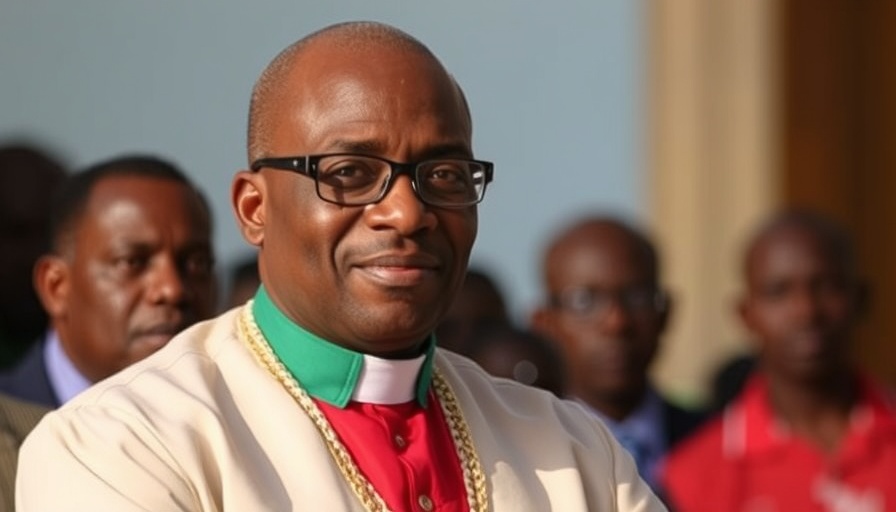
A Rising Political Star: Bishop Josephat Gwajima's Dual Role
Bishop Josephat Gwajima resonates deeply within Tanzania’s socio-political landscape, merging his roles as a legislator and a religious leader. Allegations suggest that his growing criticism of the government's approach to rising political tensions has made him a target of state repression just before the upcoming general elections, paving the way for unpredictable developments within Tanzanian governance.
Religious Institutions Under Scrutiny: A Growing Concern
The Tanzanian government’s recent crackdown on religious institutions, marked by the abrupt deregistration of Gwajima's Ufufuo na Uzima Church, raises significant concerns about freedom of religion and expression in the country. Gwajima has become increasingly critical of government inaction regarding rising incidences of political violence, including mysterious disappearances and killings of opposition figures. This situation highlights a pivotal moment, as many in the Christian community—including his 70,000 strong following—sense an encroachment on their rights and freedoms.
The Fear of Backlash: Public Sentiment in Turmoil
As the government continues its crackdown, fears of potential backlash from Gwajima’s followers loom larger. The government's assertion that the measures are intended to protect public stability resonates unconvincingly with many, particularly with the backdrop of political unrest and rising tensions among Tanzania's Christian demographic. How leaders like Gwajima navigate these turbulent waters could drastically influence the country’s political trajectory, especially with elections on the horizon.
Understanding the Political Landscape: Balancing Act for Governance
In a country that finds roughly equal divides between Christians and Muslims, Bishop Gwajima’s status not only as a religious figure but also as an MP underscores Africa’s broader governance challenges. The precarious balancing act between religious freedom and state control is of paramount importance, particularly as various religious leaders seek to voice their concerns in an increasingly authoritarian environment.
Implications for Investors and Policymakers
For business leaders and policymakers eyeing Africa's dynamic markets, the intertwining of religion and politics in Tanzania is critical to understanding potential risks and opportunities. The unfolding situation exemplifies how socio-political issues can impact economic stability, raising questions about investor confidence in the region as political contests heat up. The ramifications of this saga will echo around the globe, particularly as Tanzania navigates its place within broader geopolitical frameworks.
As observers of Africa's political arena, it is essential for leaders and investors alike to stay informed and engaged with developments such as these. The coming months could either spell stability or discord, and understanding local dynamics will prove invaluable as Tanzania steps into the election spotlight.
 Add Row
Add Row  Add
Add 


 Add Row
Add Row  Add
Add 

Write A Comment